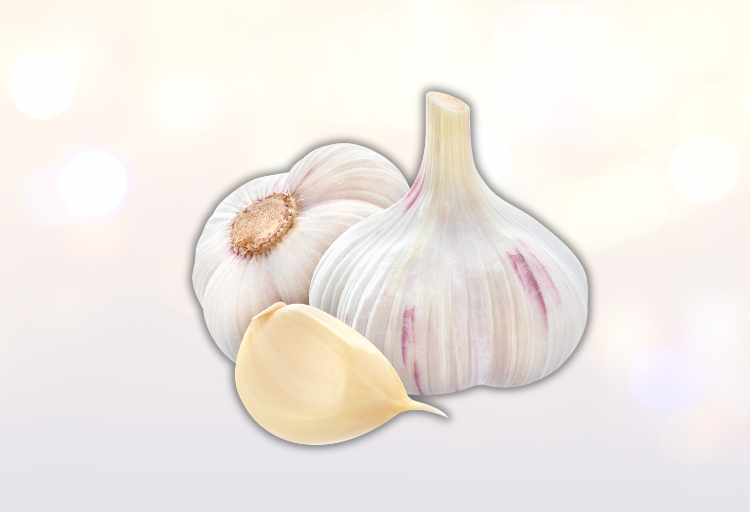Why Does Garlic Taste So Good
Do you ever wonder why garlic adds such a phenomenal flavor to your dishes?
Well, the secret lies in its chemical components. Garlic contains a compound called allicin, which not only gives it that unique taste but also provides numerous health benefits.
The sulfur compounds found in garlic are responsible for its distinct pungency and aroma. Interestingly, the way you cook garlic can greatly affect its taste. Whether you sauté, roast, or even pickle it, each method brings out a different flavor profile.
Furthermore, have you ever noticed how garlic enhances the savory taste of your meals? That’s because it has a natural connection to umami – the fifth basic taste sensation.
But the appeal of garlic doesn’t stop there; its flavor holds immense cultural and historical significance around the world.
So next time you’re cooking with garlic, remember these tips to truly elevate its incredible taste and make your dishes absolutely irresistible!

The Chemical Components of Garlic’s Flavor
You’ll be amazed by the fascinating chemical components that give garlic its irresistible taste. Garlic’s flavor is a complex combination of various compounds that work together to create a unique sensory experience.
One key player in this process is enzymes. Enzymes are responsible for breaking down specific molecules in garlic, releasing volatile compounds that contribute to its distinct aroma and taste. These volatile compounds, such as allicin, diallyl disulfide, and allyl mercaptan, are what give garlic its pungent and savory flavor profile.
Additionally, these compounds interact with our sensory perception by stimulating receptors in our taste buds and olfactory system. This interaction creates the characteristic tangy and slightly spicy sensation we associate with garlic.
So next time you savor the deliciousness of garlic, remember the vital role of enzymes and their impact on your sensory experience.
The Role of Allicin in Garlic’s Taste
Allicin’s pungent flavor adds a burst of intense spiciness to your palate. This compound is formed when garlic cloves are chopped or crushed, releasing an enzyme called alliinase that converts alliin into allicin.
Allicin is responsible for the distinct taste and aroma of garlic. Beyond its deliciousness, allicin also has several health benefits. It possesses antimicrobial properties that can help fight against bacteria, viruses, and fungi. Additionally, it may have anti-inflammatory effects and could potentially lower blood pressure and cholesterol levels.
The presence of allicin in garlic makes it not only a flavorful ingredient in many dishes but also a beneficial one for your overall well-being. So next time you savor that garlicky taste, remember the crucial role that allicin plays in making it so enjoyable and healthy at the same time!
The Influence of Sulfur Compounds on Garlic’s Flavor
When garlic is chopped or crushed, sulfur compounds are released, adding a unique and captivating flavor to your dishes. The influence of temperature on these compounds plays a significant role in the overall garlic flavor profiles.
Here are five ways that sulfur compounds affect the taste of garlic:
- Heating garlic enhances its sweetness and reduces its pungency.
- Cold temperatures preserve the sharpness and intensity of raw garlic.
- Roasting garlic at a moderate temperature mellows its flavor and brings out a nutty, caramelized taste.
- Fermenting garlic produces complex flavors with hints of umami and tanginess.
- Aging garlic at room temperature intensifies its spiciness and creates a more robust flavor.
By understanding how different temperatures can alter the sulfur compounds in garlic, you can experiment with various cooking techniques to create diverse and delicious dishes.
So go ahead, chop up some fresh cloves, release those sulfur compounds, and elevate your culinary creations with the irresistible taste of garlic.
The Impact of Cooking Methods on Garlic’s Taste
Cooking methods have a profound effect on the delicious flavors that garlic brings to your dishes. The way you prepare and cook garlic can greatly impact its taste. Different cooking techniques can bring out different flavor profiles in garlic, allowing you to experiment and find the perfect balance for your palate.
When garlic is raw, it has a pungent and strong flavor. However, when it’s cooked, its taste transforms into something more mellow and savory. Roasting garlic whole creates a sweet and caramelized flavor that adds depth to your meals. Sautéing garlic in oil releases its essential oils, resulting in a rich and aromatic taste.
The cooking method you choose also affects how you perceive the flavor of garlic. For example, if you finely chop or mince garlic before adding it to a dish, its flavor will be more pronounced compared to leaving it in larger chunks or using whole cloves.
By exploring different cooking techniques with garlic, you can unlock an array of delightful flavors that’ll elevate your culinary creations.
The Connection Between Garlic and Umami
Garlic’s unique affinity for umami flavors adds a tantalizing depth and richness to dishes that can’t be matched by any other ingredient. Umami, often referred to as the fifth taste, is known for its savory and meaty characteristics.
When garlic is cooked, it undergoes a chemical reaction that releases compounds such as glutamic acid and cysteine. These compounds contribute to its umami potential and interact with our taste receptors, enhancing the perception of umami in our mouths.
This amplification of flavor creates a satisfying and mouthwatering experience when consuming garlic-infused dishes. The connection between garlic and umami goes beyond just taste; it also plays a role in our overall enjoyment of food.
So next time you’re cooking with garlic, embrace its umami potential and elevate your culinary creations to new heights.
The Cultural and Historical Significance of Garlic’s Flavor
Throughout history, people from various cultures have celebrated the flavorful essence of garlic, savoring its aromatic and palate-pleasing qualities. Garlic’s taste has played a significant role in cultural traditions around the world.
From ancient civilizations like Egypt and Greece to modern-day culinary practices, garlic has been revered for its unique flavor profile. In many cuisines, it’s considered an essential ingredient that adds depth and complexity to dishes.
Furthermore, garlic’s taste is not only treasured for its culinary value but also for its medicinal properties. For centuries, garlic has been used as a natural remedy in traditional medicine systems such as Ayurveda and Traditional Chinese Medicine. It’s believed to have antibacterial and antiviral properties, promoting overall health and well-being.
So whether it’s enhancing the flavors of your favorite dish or harnessing its potential healing powers, there’s no denying the cultural and historical significance of garlic’s delicious taste.
Tips for Enhancing Garlic’s Taste in Your Cooking
To truly elevate your culinary creations, there’s no better way than incorporating these simple yet effective tips for maximizing the mouthwatering essence of garlic.
Enhancing the flavor of garlic can take your dishes to a whole new level. One technique is to roast the garlic before using it in your recipes. This brings out its natural sweetness and adds depth to the taste.
Another method is to finely mince or grate the garlic instead of chopping it, as this releases more of its pungent oils and intensifies the flavor.
Additionally, sautéing minced garlic in olive oil over low heat can infuse the oil with its delicious aroma.
Lastly, adding a pinch of salt while cooking garlic can enhance its savory notes and balance any bitterness.
By employing these cooking techniques, you’ll unlock the full potential of garlic’s delectable taste in your dishes.
Conclusion
So now you know why garlic tastes so good! Its flavor comes from a combination of chemical components, with allicin being a key player. Sulfur compounds also contribute to its unique taste. The way you cook garlic can affect its flavor too.
And let’s not forget about the umami connection! Garlic has been revered for centuries, and its cultural and historical significance adds to its appeal.
Now armed with this knowledge, you can enhance the taste of garlic in your cooking and enjoy it even more!
Contents
- The Chemical Components of Garlic’s Flavor
- The Role of Allicin in Garlic’s Taste
- The Influence of Sulfur Compounds on Garlic’s Flavor
- The Impact of Cooking Methods on Garlic’s Taste
- The Connection Between Garlic and Umami
- The Cultural and Historical Significance of Garlic’s Flavor
- Tips for Enhancing Garlic’s Taste in Your Cooking
- Conclusion
